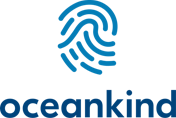| Grantee | Centro para la Biodiversidad Marina y Conservacion, A.C. ↗ |
| Grant Amount | $286,000 |
| Duration | Two Years |
Centro para la Biodiversidad Marina y la Conservación, A.C. (CBMC) is part of a consortium of binational researchers; as part of the Gulf of California Marine Program (GCMP), we maintain close relationships with the University of California-San Diego and the University of California-Riverside, directly with UC Mexus.
The mission of the GCMP is to produce robust, objective scientific information that builds a comprehensive understanding of connections between marine ecosystems and human-use activities in the Gulf of California. This knowledge informs current and future management and conservation issues of the region.
We execute scientific programs whose main goal is the generation of robust science for analysis through field work with collaborative science methodologies in close collaboration with fishing communities.
The Aburto Lab, under direction of Dr. Octavio Aburto, in collaboration with the Centro para la Biodiversidad Marina y la Conservación (CBMC) and National Geographic Pristine Seas, worked closely with Mexican policy makers to create the largest Marine Reserve in North America, Revillagigedo National Park in 2017. During the Revillagigedo project, we acted as a liaison between Mexican scientists, National Geographic, politicians, and authorities from the Mexican government. After leading several discussions and presentations, our efforts resulted in the creation of a marine reserve, declared in November 2017, resulting in the protection of 5% of the Mexican seas from all fishing activities (4.7% Revillagigedo and 0.3% other small areas such as Cabo Pulmo).
To capitalize on this success and with the support of Oceans5 we propose to further conserve Mexican seas by partnering with CONANP and Mexican organizations and leveraging already existing multi-use protected areas to help Mexico meet its commitment of protecting 10% of its federal waters from fishing by 2020. The overarching goal of this project is to create, promote, and evaluate marine reserves based on sound scientific evidence, coupled with community-based knowledge.
Ultimately, we aim to use science to influence conservation decisions and, in this case, generate support for CONANP and conservation measures within the tourism sector and general public. This will be achieved by: (1) reviewing current policies related to MPAs to identify possible legal avenues to expedite the creation of no-take reserves within them; (2) establish no-take reserves in remote, sparsely populated islands that are currently surrounded by multiple use MPAs; (3) identify and establish no-take areas in coastal areas by engaging the diving sector; (4) strengthen MPA management plans; (5) assessing Mexico’s compliance with IUCN Green List indicators; and (6) increasing knowledge on no-take areas and MPA management efficiency. We will collaborate with policy makers and contribute scientific information and technical expertise to achieve these six objectives and enable Mexico to fulfill commitments in international treaties (such as AICHI Biodiversity targets and the Global Goals for Sustainable Development), and to protect marine ecosystems and their biodiversity.
Our organization proposed strategy is aimed to first conduct the research and analysis, then build a network of support with academic, legal and NGO partners, and lastly communicate the research findings to stakeholders and policy makers. Funds requested for this two-year project will be used to support scientific and legal advice, our work with stakeholders and governmental agencies, and to increase the impact of our communication efforts at the national level, through the below activities:
1. Consolidate support networks with researchers, the tourism sector (i.e. diving operators), corresponding government agencies (i.e. SEMARNAT, CONANP, CONABIO), etc.
2. Provide the scientific and legal input to inform public policy changes, particularly in the MPAs’ decrees and their management plans, in order to improve MPA management efficiency, and increase no-take marine reserves in Mexico.
3. Maintain presence in Mexico City, and in partnership with Pristine Seas, continue discussing the importance of no-take reserves in meetings with key government and NGO officials.
4. Design and produce a national outreach campaign to increase transparency of MPA management information, and generate public support for the expansion of the marine reserves and no-take zones. This will also include informing the public of research findings, and the process through which we came to the conclusions.























